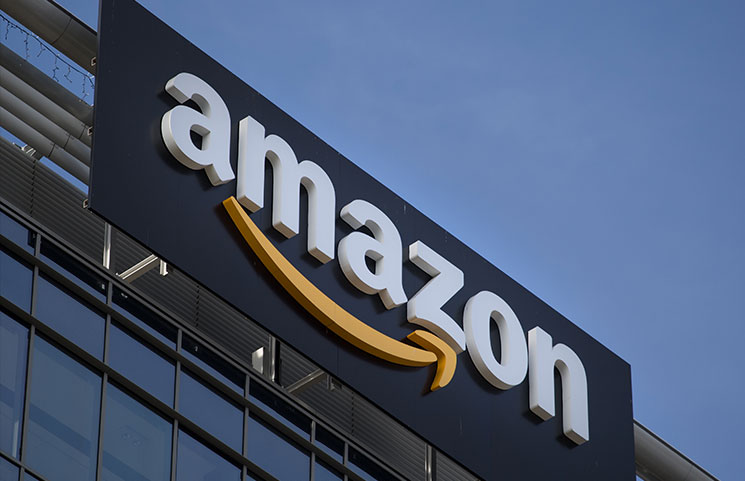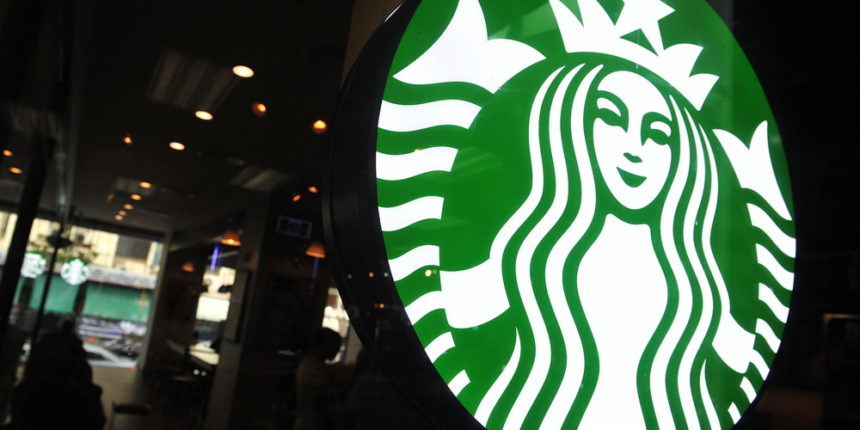Blockchain News
Coinmarketcap Forms Alliance with Major Exchanges to Make Crypto Prices More Transparent

Crypto data provider Coinmarketcap has partnered with major exchanges to improve transparency in the crypto price landscape.
The new alliance has been dubbed the Data Accountability & Transparency Alliance (DATA). The group will discuss ways to improve cryptocurrency data reporting, making prices more accurate and transparent for users.
Led by Coinmarketcap, the alliance includes some of the biggest names in the crypto exchange space, including Binance, Bittrex, OKEx, Huobi, Liquid, Upbit, KuCoin, HitBTC Gate.io, OceanEx and Bitfinex.
Members of the alliance will provide “in-depth suggestions” on how to boost transparency in the crypto price reporting space. The team will meet twice per year at a roundtable event.
Coinmarketcap has already made concrete changes on behalf of the new alliance. The website now requires all exchanges on the platform to provide live trading data and live orderbook data. Any exchanges that fail to do so within 45 days will be removed from the platform’s adjusted volume calculations.
In other words, Coinmarketcap won’t just trust exchanges to report accurate information through their APIs by default. Coinmarketcap now requires direct access to live trading and live orderbook data.
Bitwise Report Indicates Coinmarketcap’s Data is Wrong
The news about DATA comes one month after a report from Bitwise Asset Management claimed that 95% of bitcoin exchange trading volume is fake. That report indicated that the true spot market for bitcoin essentially only existed on 10 different exchanges.
Shockingly, the Bitwise Asset Management report claims that average daily bitcoin trading volume is only around $273 million, compared to the $6 billion reported by Coinmarketcap.
Bitwise used this information to create BitcoinTradeVolume.com, which aims to inform users of the ‘real’ trading volume in the crypto space today.
As of May 1, BitcoinTradeVolume.com reports 24 hour bitcoin trading volume of $292 million. That trading volume is spread across ten major exchanges, including Binance, Coinbase, Kraken, Bitfinex, Bitstamp, bitFlyer, Gemini, Poloniex, Bittrex, and itBit.
The site also tracks bitcoin futures trading volume, which currently sits at $87 million per 24 hour period. $83 million of trading volume is on the CME Group futures exchange, while the remaining 4 million is on the CBOE’s bitcoin futures exchange.
Coinmarketcap Acknowledges the Need for Change
Based on the Bitwise report, Coinmarketcap decided to make changes to how it reports and analyzes crypto data:
“We recognize the need for evolving with the times, and want to continue … providing transparency and discovery for the long-tail of crypto assets,” said Coinmarketcap founder Brandon Chez.
In addition to forcing exchanges to be more transparent, Coinmarketcap is also launching its own block explorers for bitcoin and Ethereum. The goal is to help new users better understand how to interact with these blockchains.
Last month, Coinmarketcap rolled out its first Android app along with new updates for its iOS app. Today, the mobile apps feature portfolio tracking and candlestick charts, among other useful features.
More transparency for the crypto community is always a good thing. Exchanges are required to make Coinmarketcap’s changes within 45 days. We’ll see how many exchanges comply with the requirements – and how much Coinmarketcap’s reported trading volume changes after 45 days.
Blockchain News
Amazon Files New Patent For a Proof-of-Work System That Uses Cryptography

- Amazon has filed a patent for a Proof-of-Work (PoW) system that uses cryptography. Amazon has been working in different blockchain-related projects in the last few months and it is expanding its presence in the market.
Amazon has filed a patent for a Proof-of-Work (PoW) system that uses cryptography. Amazon has been working in different blockchain-related projects in the last few months and it is expanding its presence in the market.
Although this is not related to blockchain technology, Amazon has made several advances in terms of Distributed Ledger Technology (DLT). A few days ago, the company announced that its Amazon Web Services were going to be using a managed blockchain service and allow users and companies to set up their own blockchain network using Amazon’s services.
Moreover, Whole Foods, a subsidiary of Amazon, announced this week that it will be accepting payments in different virtual currencies, including Bitcoin (BTC), Ethereum (ETH), Gemini USD (GUSD) and Bitcoin Cash (BCH).
Amazon has recently filed a patent that makes reference to a proof-of-work (PoW) system that uses cryptography. This patent was filed just a few days ago on May 14 and it describes techniques that use Merkle trees as a solution to a PoW challenge.
Implementing New PoW Tools
Blockchains are formed by different components, and one of them is Merkle trees. In this patent filed by Amazon, the generation of these Merkle trees could fulfil a challenge and give access to a computer resource. The abstract explains that this challenge may include a message and a seed that can be used in part to cryptographically derive information that could be used to generate a solution to that challenge.
This innovation could eventually be used to protect systems from denial-of-service attacks and other similar actions from attackers and hackers, which are expanding in the crypto space. The patent does not make any reference to blockchain technology or virtual currencies.
Anthony Pompliano, co-founder and partner at Morgan Creek Digital, has also informed about Amazon’s plans and PoW system.
Amazon Files New Patent For a Proof-of-Work System That Uses Cryptography
Amazon has recently filed a patent that makes reference to a proof-of-work (PoW) system that uses cryptography. This patent was filed just a few days ago on May 14 and it describes techniques that use Merkle trees as a solution to a PoW challenge.
Implementing New PoW Tools
Blockchains are formed by different components, and one of them is Merkle trees. In this patent filed by Amazon, the generation of these Merkle trees could fulfil a challenge and give access to a computer resource. The abstract explains that this challenge may include a message and a seed that can be used in part to cryptographically derive information that could be used to generate a solution to that challenge.
This innovation could eventually be used to protect systems from denial-of-service attacks and other similar actions from attackers and hackers, which are expanding in the crypto space. The patent does not make any reference to blockchain technology or virtual currencies.
Anthony Pompliano, co-founder and partner at Morgan Creek Digital, has also informed about Amazon’s plans and PoW system.
BREAKING: Amazon has filed a patent in the US for a proof-of-work system that leverages cryptography.
There’s not a large company in the world who isn’t going to join the revolution.
THE VIRUS IS SPREADING 🔥
— Pomp 🌪 (@APompliano) May 16, 2019
Although this is not related to blockchain technology, Amazon has made several advances in terms of Distributed Ledger Technology (DLT). A few days ago, the company announced that its Amazon Web Services were going to be using a managed blockchain service and allow users and companies to set up their own blockchain network using Amazon’s services.
Moreover, Whole Foods, a subsidiary of Amazon, announced this week that it will be accepting payments in different virtual currencies, including Bitcoin (BTC), Ethereum (ETH), Gemini USD (GUSD) and Bitcoin Cash (BCH).
Image courtesy of Time.com
Blockchain News
eBay ads suggest that you will soon accept crypto

Photos of the preparations for the next conference of Consensus 2019, which will be held this May 15 in New York, in which eBay is one of the sponsors, have been leaked. According to the photographs of the marketing material of the conference, they suggest that eBay could soon start accepting cryptocurrencies.
This year, eBay is one of the main sponsors of the annual event, and joins other companies such as: Tata, Deloitte, IBM, Microsoft, the Federal Government of Australia, Citi, AWS and Accenture.
The rumor was originated by the publication of a Twitter user:
Filtering the Consensus, eBay possibly announces the support of cryptocurrencies on its website.
According to the filtered photos, the eBay advertising is not very clear, but probably that is what it is, that is suggestive. However, it shows a clear interest of the company for virtual currencies and digital collectables. In one of the ads you can read:
Virtual currency. It's happening on eBay.
The choice of the slogan worked; After the photographs were put online, social networks and traditional media started a debate that continues to involve the cryptocurrency community and generate any number of theories about it.
In particular, the phrase “is happening on eBay,” in reference to virtual currencies, seems to suggest something imminent. Do not forget that eBay is one of the sponsors of the event, which suggests that eBay is looking for partnerships within the block chain industry, because in another ad you can see that it “boasts” of its broad “customer base” of 179 million buyers », something that attendees can see during the entire event.
On the other hand, for some time, eBay has been a platform where Bitcoin transactions are made between users, so it would not be surprising if the company decided to organize, for example, an OTC exchange to increase the volume of these transactions, and therefore also that of their commissions.
According to other hypotheses published on Twitter, it is possible to announce the support to Binance Coin (BNB) as an alternative means of payment to the fiduciary currencies, or it could announce an association with the UTRUST cryptographic payment platform.
This is because an eBay executive, Sanja Kon, joined UTRUST last year, an encryption payment company, which could also be indicative of eBay's encryption ambitions. Possibly, Kon would try to get eBay as a strategic partner.
UTRUST supports Bitcoin, Litecoin and Ripple among other currencies, while also generating its own native token, which, if true, would probably be included in any form of acceptance agreement.
In December, eBay's senior vice president, Scott Cutler, revealed that the company was considering cryptocurrencies as an additional payment option, but they were still not entirely sure.
However, it should be remembered that eBay already has a category called «Virtual currency», so the slogan «Virtual currency. It's happening on eBay »: could refer to that category, which allows users of the platform to exchange crypts against fiat anonymously.
If that is the case, then the cryptocurrency community has been reaching conclusions too quickly. Or, as some suppose, could refer to what could be transformed into an exchange.
These and other rumors, although not confirmed, fit the optimistic sentiment of this year, since throughout this 2019 we have seen companies and some governments have shown a more proactive stance to support and approach blockchain.
Although each hypothesis should be considered as an assumption without concrete foundations, the community will be aware of where eBay's intentions might be headed.
Blockchain News
Starbucks is Making Use of Blockchain and IoT to Build Better Personal Relations With its Customers

As per an all-new article published on the official Microsoft website earlier today, Starbucks is in the process of devising a novel blockchain-driven UI that will allow customers to have a smoother, more personalized coffee buying experience in the near future.
In regards to this development, Gerri Martin-Flickinger, Starbucks’ CTO and VP, claimed that his company had hired a “world-class team of experts” who were experimenting with a host of technologies so as to create solutions that will help increase the multinational’s human interaction with its customer base.
More on the Matter
Many of our regular readers may remember that Starbucks has been making use of technology called ‘Reinforcement Learning (RL)’ for quite some time now. For those of our readers unaware of what RL is, it is essentially a type of machine learning protocol through which a system is put in a position to make better decisions when faced with complex everyday scenarios (primarily via the use of external feedback data).
Additionally, it should also be pointed out that Starbucks’ smartphone app too makes use of a ‘reinforcement learning’ module — so as to deliver users with customized recommendations based on things like:
- Local store inventory
- Weather
- Time of day
- Community preferences
On the subject, Starbucks’ Jon Francis was quoted as saying:
“Just like their relationship with a barista, customers receive the same care and personalized recommendations when it comes from our digital platforms,”
Other Key Data Worth Remembering
- Starbucks is going to be making use of various RL-based operational modules to improve its drive-thru experience in the coming few months.
- The technology is currently being tested out at the Tryer Center Innovation Hub in Seattle.
- According to Francis, machine learning and artificial intelligence based protocols will soon be used by Starbucks within domains such as future store design, customer engagement and inventory optimization.
- Through the use of IoT-based devices, Starbucks in conjunction with Microsoft is looking to collect a host of data that will allow the firm to identify any problems with its coffee vending machines that might be located all across the globe. Not only that, the platform will also allow Starbucks to “send new coffee recipes directly to machines, which it has previously done by manually delivering the recipes to stores via thumb drive multiple times a year.”
“Think about the complexity — we have to get to 30,000 stores in nearly 80 markets to update those recipes. That recipe push is a huge part of the cost savings and the justification for doing this.”
Blockchain and its Utility in ‘Coffee Sourcing’
On the subject of blockchain technology, a news report claims that Starbucks is all set to deploy a blockchain enabled system that will allow clients to know “more about their coffee beans” with the touch of a button.
This platform is going to be powered by Microsoft’s Azure Blockchain Service — a platform that allows people to know the ”movement of their coffee and its transformation from bean to final bag”.
“While high-quality, handcrafted beverages are so important, it’s the stories, the people, the connections, the humanity behind that coffee that inspires everything we do. This kind of transparency offers customers the chance to see that the coffee they enjoy from us is the result of many people caring deeply.”
Final Take
In closing out this piece, it should be pointed out that during its annual shareholders meeting in March this year, Starbucks’ executive brass revealed that their customers will soon be able to use the firm’s official smartphone app to trace the journey of their individual coffee cups.
“What we’re still working on is interviewing coffee farmers in Costa Rica, Colombia and Rwanda, learning more about their stories, their knowledge and their needs in order to determine how digital traceability can best benefit them. We’re forging new ground here, so we’re excited to report more in the coming months.”










